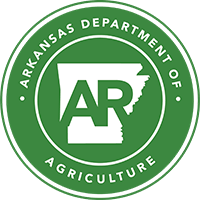Plant Industries
Serving the citizens of Arkansas and the agricultural and business communities by providing information and unbiased enforcement of laws and regulations set by the Arkansas State Plant Board
Agriculture / Plant Industries / About Us
About Us
Arkansas Department of Agriculture’s Plant Industries Division
The mission of the Plant Industries Division is to protect and serve the citizens of Arkansas and the agricultural and business communities by providing information and unbiased enforcement of laws and regulations thus ensuring quality products and services. Our vision is to maintain a competent, friendly, cooperative, and efficient Division able to promptly serve the agricultural and business communities and the general public in a credible, professional manner.
The Plant Industries Division (Division) administers the rules promulgated by the Arkansas State Plant Board. The State Plant Board promulgates rules pursuant to more than 20 different Arkansas laws regarding a wide range of agricultural products, practices, and pests. The Arkansas State Plant Board also establishes administrative penalties for rule violations.
The Division is organized into five sections: (1) Pesticide; (2) Regulatory Services; (3) Quality Control and Compliance; (4) Bureau of Standards; (5) Inspection Services Section.
The Division conducts work activities associated with 58 diverse programs with approximately 98 full-time employees and 89 seasonal employees. The programs range from pesticide enforcement and nursery inspections to seed certification and hemp research licensing.

